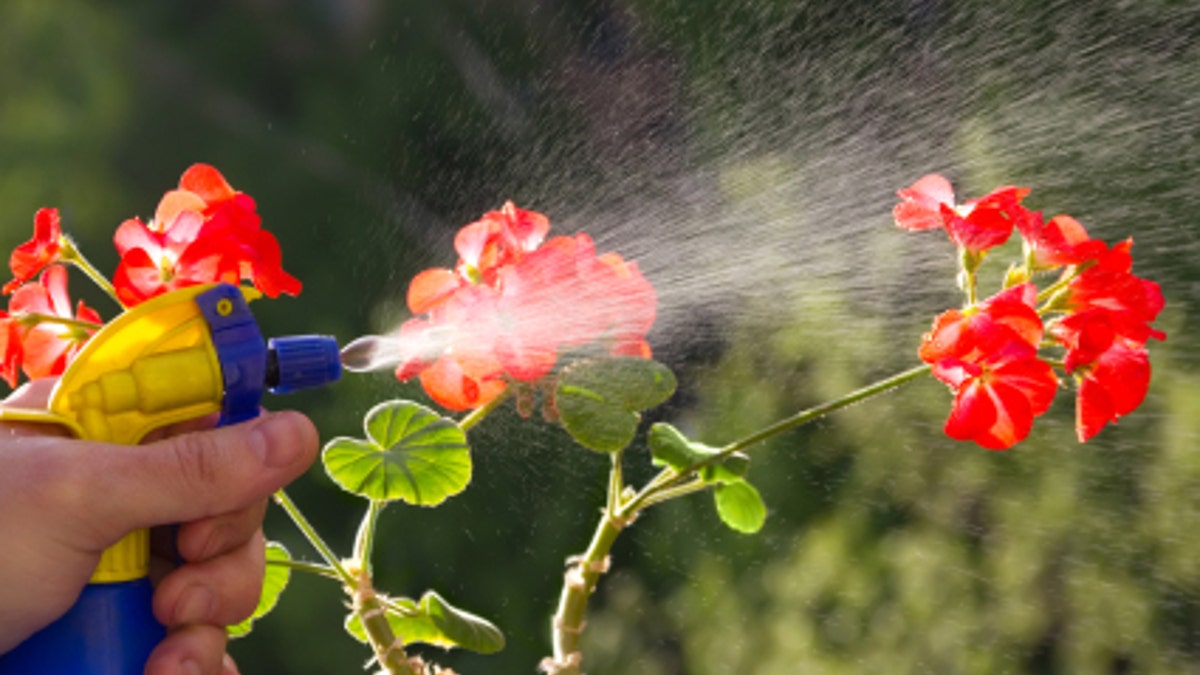
A pesticide is any substance used to repel, kill or control certain kinds of animal and plant life considered pests. People often use pesticides in their gardens to kill insects, but they are also used to attack weeds, rodents and mildew. There are health and environmental hazards involved with garden pesticides that should be taken into account to ensure safety.
Pros of garden pesticides
Insects, mice, unwanted plants, fungi and microorganisms (viruses and bacteria) can damage crops, humans or other animals. Pesticides are designed to stop all of these pests, as well as herbicides and fungicides. Herbicides destroy unwanted vegetation and weeds. Fungicides stop the spread of mold and mildew.
By stopping these pests in their tracks, pesticides protect your vegetation and stop disease-carrying organisms. This is particularly useful in your home garden to ensure higher quantity and quality crops. Any wooden structures in your garden will also be protected.
Pesticides are readily available in stores. Some weed killers, for instance, are available commercially, and homemade recipes are available on the internet.
Craig Jenkins-Sutton, president of Topiarius (an urban garden and floral design company), explained that some of these pesticides kill weeds by rapidly changing their pH levels to an abundantly alkaline or acidic state.
Some pesticides are safer than traditional chemical pesticides, and the Environmental Protection Agency has reported that biologically-based pesticides are being used more frequently.
Cons of garden pesticides
Alas, pesticides are replete with problems. Since pesticides are designed to kill living organisms, they can harm humans, animals and the environment. They work because they are toxic. Pesticides cause a wide range of health problems, from birth defects and damage to the reproductive system to cancer, according to the Alliance for Healthy Homes.
Jenkins-Sutton recommends that pesticides not be used on lawns and gardens where children and pets play. According to the National Pesticide Information Center, infants and children are more sensitive to the harmful effects of pesticides than adults for various reasons: their organs and nervous systems are still developing, they breathe more per minute, and they are closer to the ground.
According to the National Institute of Environmental Health Sciences, scientists do not understand the extent of pesticide's health effects, but current research from the Agricultural Health Study demonstrates that headaches, fatigue, hand tremors and other neurological conditions occur more frequently in farmers who have handled pesticides.
Even though some organic pesticides are safer than the traditional variety, Jenkins-Sutton points out that these organic pesticides are "more expensive, more work and less effective at killing all of the weeds in our gardens."
Since pesticides have pros, they will continue to be used, especially by agricultural industries. However, since they can be harmful, it is important to practice caution when using them and to limit your exposure to these substances. For more information about pesticides, you can visit the National Pesticide Information Center.



















